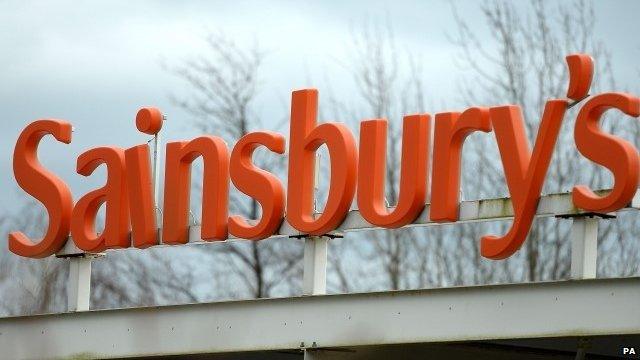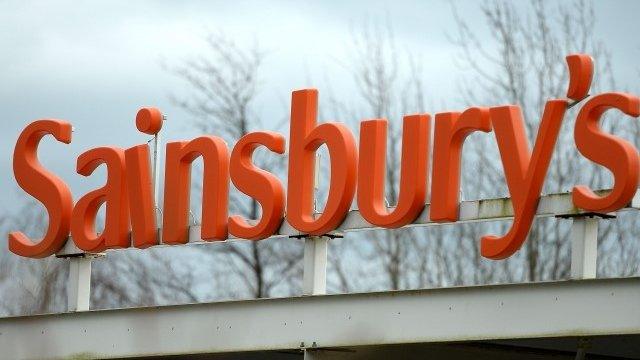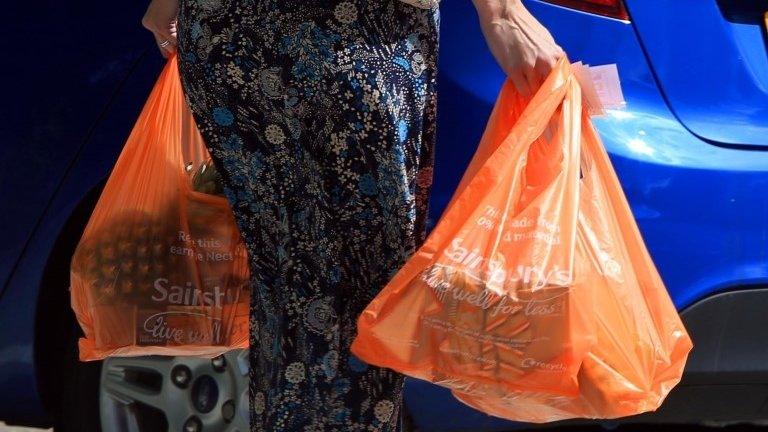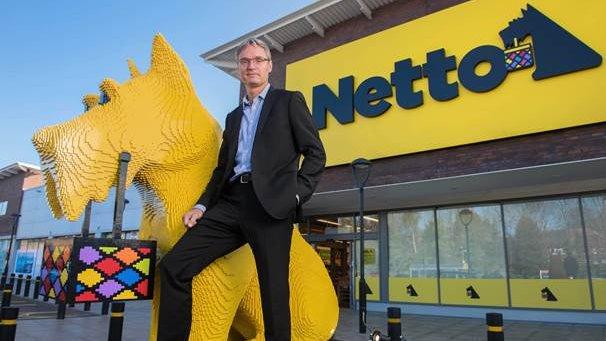Sainsbury's warns market 'remains challenging'
- Published

Sainsbury's has warned it expects the market to "remain challenging for the foreseeable future" after reporting a drop in like-for-like sales for a fifth consecutive quarter.
It said sales at stores open at least a year fell 1.9% excluding fuel in the 10 weeks to 14 March.
Total sales fell 0.3% as price cuts and food deflation both affected trading.
Sainsbury's said the drop in sales reflected decisions the group had taken to "improve our competitiveness".
Shares rose 1.5% after the announcement, with analysts saying the supermarket chain's performance was better than expected.
At the start of the year, Sainsbury's said it would cut the prices of 1,000 of its most popular products as part of a £150m programme announced in November.
It said it had now reduced prices on more than 1,100 items, resulting in an average sales increase of 3% on these products.
But it said a combination of food deflation, which it expected to continue for the rest of the year, and competitive pressures on price meant the outlook remained challenging.
The "big four" supermarkets, which also includes Tesco, Asda and Morrisons are engaged in a bitter price war as they battle for customers.
A combination of increased competition from discounters Aldi and Lidl, customers shopping around for bargains and a switch to convenience stores and online shopping has hit all of the main supermarkets.
However, Sainsbury's said that its general merchandise and clothing business had performed strongly, with sales up more than 6% on last year.
It also said its convenience store sales, an area supermarkets are increasingly focusing on, were strong with sales up 14%.
Retail Vision director John Ibbotson said Sainsbury's performance was "marginally better than expected".
"What's very clear is that Mike Coupe's Strategic Review needs to be implemented faster. There has to be greater urgency at Sainsbury's or it will see bigger sales falls in the future. This is not one that will play itself out over time," he added.

Analysis: BBC business editor Kamal Ahmed:
Sainsbury's like-for-like sales - the key marker of a retailers' health - are falling but the "volumes" of sales are rising. Which all sounds a bit topsy-turvy until you consider that the two figures are measuring different things.
Like-for-like sales are not actually a measure of the number of baked beans a supermarket sells. They are a measure of the total value of sales that are made at the tills and online.
And in an era of food deflation, hyper-competition on price and the growth of own-brand ranges which tend to be cheaper, the value of sales is falling across the sector.
In fuel, it is particularly acute. As the price of a litre of petrol tumbles towards £1 and supermarkets attempt to grab market share through price promotions, they have to sell a lot more fuel to gain the same "like-for-like" figure.
Sainsbury's like-for-like sales including fuel are down 3.9%. Excluding fuel, they are down 1.9%.
So, Mike Coupe, the relatively new chief executive of Sainsbury's, might not be too gloomy about today's trading update. He is selling more stuff - volume - at lower prices.
That might not be great for the bottom line. But it's certainly pretty good for the consumer.

- Published7 January 2015

- Published12 November 2014

- Published6 November 2014
